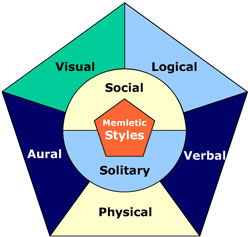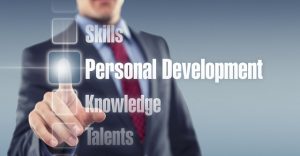 Sometimes the obvious is not so clear. And occasionally, it just suddenly jumps out.
Sometimes the obvious is not so clear. And occasionally, it just suddenly jumps out.
A few weeks ago a close acquaintance was reading my last Blog (see below) when a seemingly obvious point newly occurred to him.
“Most self-help are not all that profound or different. It just requires that you do the work.”
We all have sudden realizations. Sometimes things seem so apparent we wonder how we’d never before been truly aware of them and their deeper meanings.
Important truths are often right under our noses.
In this case: to learn, we need to do the work.
Learning doesn’t simply happen by osmosis.
But The Work is different for everyone.
And Learning is not the same process for all.
Yet we treat everyone as if the way to learn IS a uniform, guaranteed program.
Consider the following…
In most cultures we prepare our children for the world by schooling, to ensure they have a prescribed set of essential tools.
And a schooling process is by definition, standardized. It presumes WHAT needs to be LEARNED and HOW it will be TAUGHT to best effect. Specific learning centers are set up to provide these services.
Well, this probably is the most effective way to simply provide mass schooling. It also may be an ideal (proven over centuries) method for many folks to learn.
But surely, it’s not ideal for all. And it is no stretch to realize that one set method for many may be completely unsuitable for others.
For Example: If you’re a hands-on person, so-called book-learning approaches won’t be the best way for you to absorb information. And vice versa.
Further, the way students prepare for examinations (i.e. revise) is indicative of the highly individualized needs we have for truly embedding learning.
For this situation consider these Examples of wildly varying approaches (to the revision process): Some people demand total silence, others need loud music. One student wants isolation, another seeks bustle and activity in their surroundings.
These differences are quite radical. A person needing any one such option is probably quite unlikely to be as successful in opposing situations. And this is just the process of revision.
What about the entire process of learning itself?
To learn we typically pass through predictable, generalized stages:
Exposure – to Information
Ingestion – of Data, Facts and Ideas
Adoption– where Information becomes part of our Knowledge-Base
Demonstration – of Learning (as proof of Adoption; or Incorporation)
Yet every single one of these simplified learning phases can needs-be different for each person. For Example, Exposure: Some like to see (video), others read (book(s)), perhaps hear (be instructed), or experience directly and so on.
And what we are learning about might be better absorbed (Ingestion) by a varied or different approach. Another Example: Reading a Book about driving a car won’t be as sticky with a student as actually sitting behind the wheel.
The problem is compounded when considering the WHOLE PROCESS of Learning: Exposure, Ingestion, Adoption and Demonstration. Almost every individual will do better when each phase is optimally aligned with their specific and peculiar needs. This much seems obvious but is hard to satisfy in practice.
Teaching Institutions are funded and organized to best serve their communities with the resources available. The intent is to service the needs of many in the most practical way possible.
Schools, Colleges and Universities are from time-to-time incrementally redefined and configured in novel and unique ways (over decades and centuries) to satisfy these ends as best possible, thereby supporting and acknowledging unique requirements. Indeed, some minor amount of accommodation is out there and available, but there are largely set menus of how learning is provided.
And in cultures and communities where resources are scant, its Hobson’s Choice.
But there do exist in the world classes and courses developed for specialized learning…
In many industrialized countries we teach Managers and Executives with novel methods. Troops undergo specialized training and conditioning. There are many so-called hands-on and experiential courses and classes.
Yet these are mostly organized around the peculiar needs of teaching a specific subject and accommodating a particular type of person, not satisfying the distinctly different learning needs of any one individual.
It appears already reasonably understood that some subjects are best truly learned by employing different approaches. One size does not fit all.
The message here is clear: Take care not to limit your OWN learning and growth by HOW you get to learn. Choose methods that work for you (and others you care about).
So now let’s return to where we began this Blog, on the subject of Self Development…
Surely there are people who WANT to improve themselves and evolve in their lifetime? But how many search out appropriate opportunities?
One would think anyone NEEDING to enhance their skills (for Career, Work or Social reasons) would be constantly heads-up, looking for ways and means.
Surely those with Behavioral Issues would be desperate to break loose and improve their lot?
Relatively few SEEK truly robust ways to improve. Even less will commit to do the work to make things happen.
The realization that it ultimately takes work to self-improve seems obvious.
Yet in decades of observation I’ve seen few individuals take up the challenge in other than more superficial situations…
We may read a book to flirt with developing an occasional new skill, or perhaps embark on the odd challenge, but we do not seem ravenously hungry to grow ourselves. A gesture toward learning is not the same as solidly embedding real knowledge and establishing essential new behavior.
In many cultures daily work and responsibilities are permitted to consume and overrun our lives.
Ironically, we OFTEN desire to improve ourselves and evolve. We NEED and WANT to advance our quality–of–life, careers and experiences.
Yet we allow the hustle and bustle of daily events to blanket our greatest desires. The present is permitted to smother our future.
In the end we each need to identify what we really want and who we wish to be. But to truly succeed we ultimately must just do the work.
Do you understand who you want to be? Have you followed through and determined what it takes to get there? It’s usually clear what needs to be done and how you should best approach Learning, to match your unique needs.
In the end you need to challenge yourself to just do the work, and you WILL get there.
Ian R. Mackintosh is the author of Empower Your Inner Manager Twitter@ianrmackintosh

